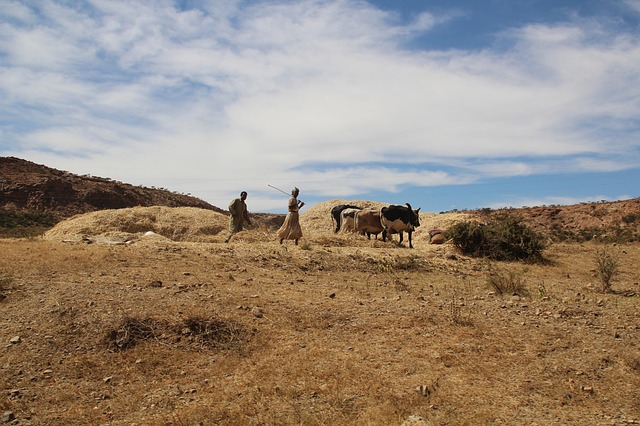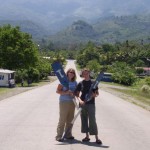4 Eritrean Superstitions and Beliefs

Growing up, I didn’t live by superstitions–though many of my Eritrean community members do. I didn’t run at the sight of an umbrella indoors and walk on one side of a pole. Aside from a gulp of holy water every month or two, I have never engaged in water as a traditional medicine aimed at spiritual cleansing. And I never questioned the role of superstitions in Eritrean culture until last summer when my mother scolded me for spitting in a toilet. I thought: “What else is there to find out?” As time passed I learned about more superstitions. Below are four things you probably didn’t know that Eritrean superstitions.
4 Eritrean Superstitions and Beliefs
1.Henna & Tiki
Don’t leave your home without placing your henna hands over a small fire unless you want to catch a cold. In a quest to examine authentic henna in the homeland, I bought a few boxes and asked a relative to apply them onto both of my hands.
On the day of, my abayey [grandmother] stopped me in my tracks one afternoon as I headed for the door and warned me about leaving without the heat-to-hand contact.
She didn’t actually say whether this method has deterred colds. After grabbing a menkerker (the tong used to place and poke charcoal in the brazier), she threw a piece of tissue. She threw it into the burgeoning fire and told me to place my hands over the heat. I hovered over the fire until abeyey dismissed me.
2.Hold Yo’ Saliva
My mother noticed me hunch over to spit in a toilet while staying at her sister’s home in Asmara, the capital city. “Komu ayti’ gebri,” she said, “don’t do that Ariam. Otherwise, you’ll grow a swollen infection on the side of your neck.”
Holding your saliva, perhaps from eating spicy foods, could send you to the emergency room. But I didn’t ask why because I trusted my mother. And dispensed my saliva in the basket that collects all my morning germs.
When my mother caught me almost spitting in our bathroom toilet months later, she reiterated that spitting in toilets are off-limits, and said that disposal garbage bags and sinks are forbidden too.
3. Maicholot (Water) Heals All
Water in Eritrea is the richest element of life, which didn’t surprise me to hear because it is believed to heal people of their misfortunes and ward off their illnesses. If someone suspects themselves or a member of the family and community to have an illness, they’ll engage in the purifying cleanse. The cleanse is called Maicholot.
Mothers, elders and children with any physical or mental handicap attend various stations throughout the country to practice this healing. That subjects them to washing their body in cold, frigid water while praying. Maicholot is an Eritrean remedy and long-time alternative in lieu of medical help. Practitioners are able to stay overnight, where the Maicholot happened or return home afterwards.
Calling Maicholot a superstition is a stretch because people actually believe it in, however, without research disclosing its effectiveness it’s on the list. If I had one wish, it would be to visit a site where Maicholot takes place.
4. Boon & Bad Spirits.
A popular pastime in Eritrea and its diaspora is the traditional coffee ceremony, which is fixed upon the host depending on an occasion and mood. An aunt often played the hostess as it was her home, however, my mother’s other sisters took turns preparing once a week. They took delight in preparing their own consumption using a heavy stick made of steel or a machine to grind the beans. Next they would pour the hot, black liquid into tiny, ceramic cups without handles.
With laughs, a basket of unsalted popcorn and himbasha [round, baked decorative bread] the ritual reflected tradition and family – two tenets of Eritrean culture. Also, the scent of incense rocks etched in the air during traditional coffee ceremonies repels bad spirits and potential evils in the home.
As my Christian mother says, God makes bereket [happiness] for the home, and with it comes love, health, and money.
4 Eritrean Superstitions and Beliefs
Related Reading
9 Tips for Navigating Ketema, Eritrea
Why Celebrating Idhul Adha Isn’t Just About the Animal Sacrifice
Samoan Ghost Stories: Living Superstition
Have you traveled to Eritrea? What were your impressions? Email us at editor@pinkpangea.com for information about sharing your experience and advice with the Pink Pangea community. We can’t wait to hear from you!
Join Pink Pangea’s Travel Writing, Hiking and Yoga Retreats! Photo for 4 Eritrean Superstitions and Beliefs by Pixabay.








